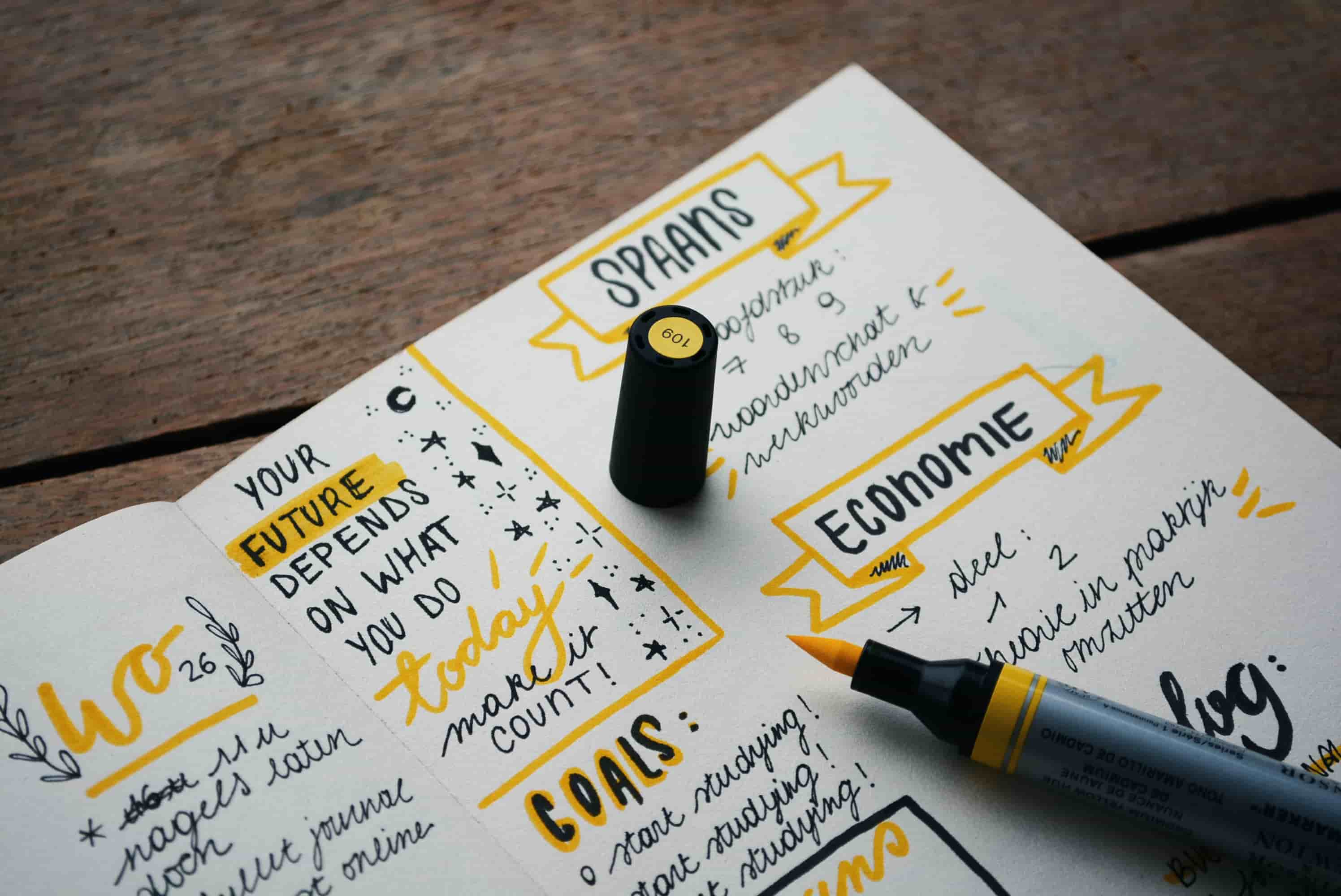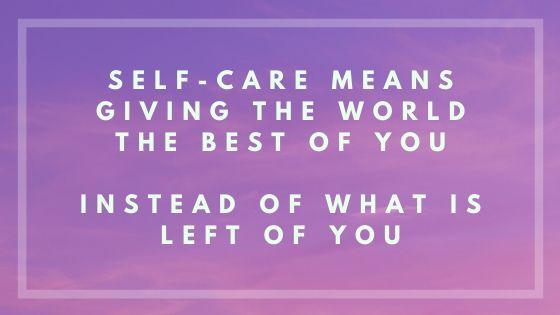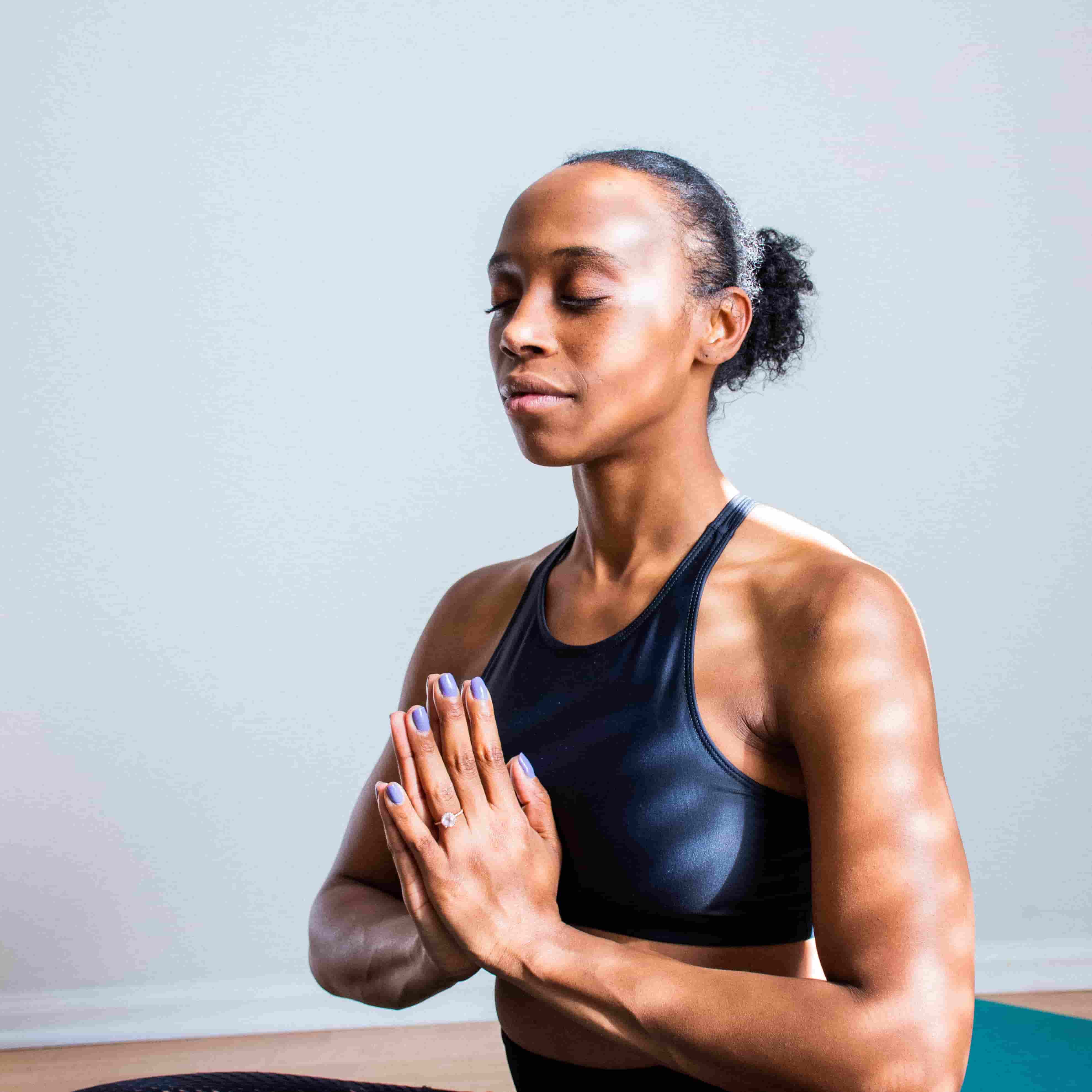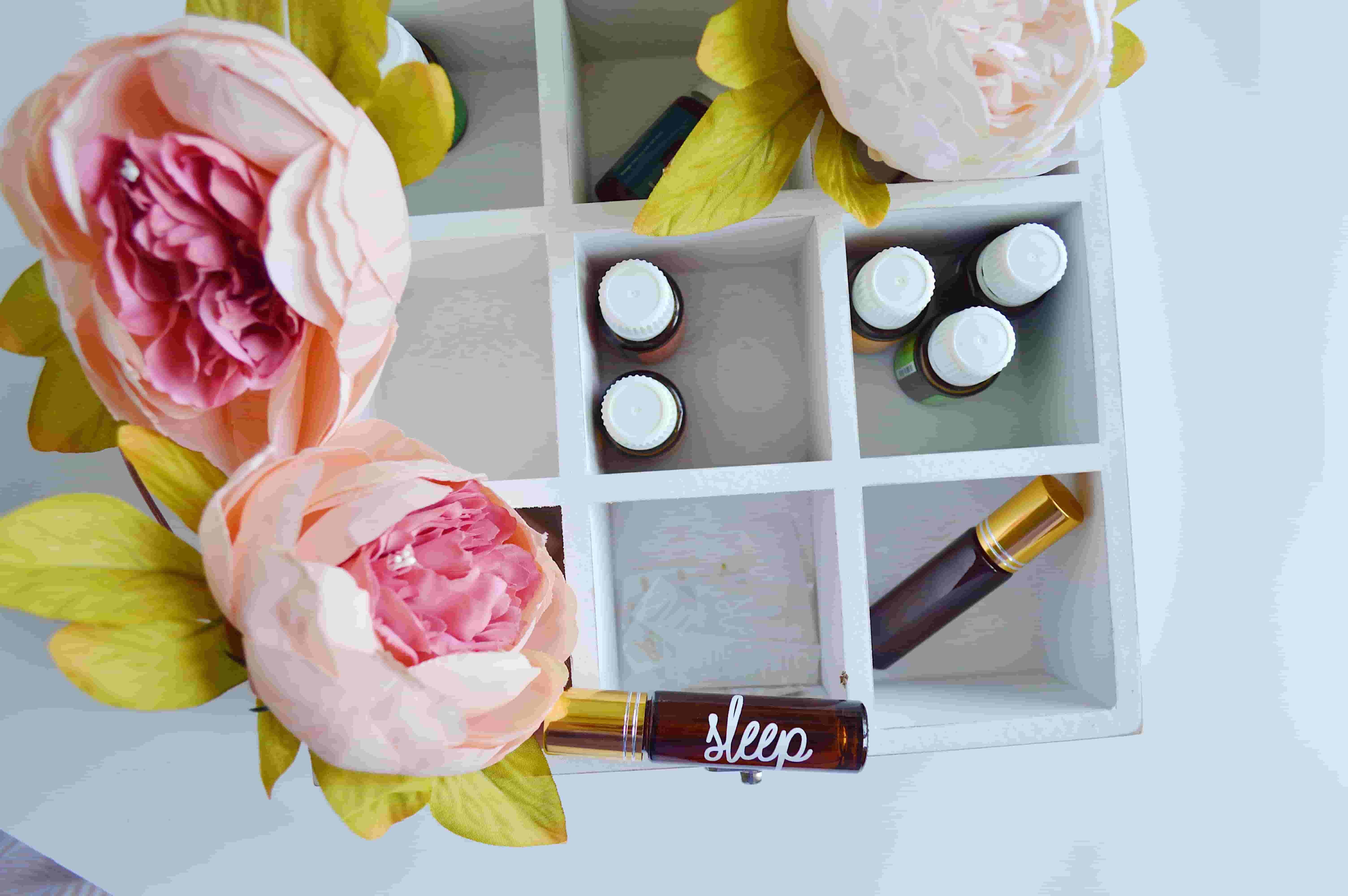Worried about the new year? Tired of the endless ‘New Year, New You’ messaging? Here are our tips to help you feel more prepared and less anxious
Anxiety is never a pleasant feeling. Between the stress and time commitments around the holidays, and the added pressure to have the year ahead planned, to make it our ‘best year ever!’ it’s no wonder that so many of us feel anxious when thinking of the year ahead.
One counsellor explains how the pressure for new year’s resolutions, change and action can feel like a black hole.
“[When you think of new year], what if instead of hope and optimism, you feel a sense of dread, loneliness, loss or sadness? For some, the beginning of a new year can slowly and steadily start to feel like falling into a black hole.
“It can be really difficult to let others know if you find yourself surrounded by people who are in good psychological shape, with lots of energy for the upcoming year. You don’t want to do anything that might make them feel bad [or risk letting] people know you are not coping.”

If you’re struggling with feelings on anxiety about the upcoming new year, you aren’t alone. It’s important to recognise and acknowledge how you are feeling; this can often be the first step towards making active, positive changes that can help improve your overall mental health and wellbeing.
Discover more about anxiety, and try these six simple ways to feel less anxious and more positive about the new year.
How can I manage my new years’ anxiety?
1. Goodbye resolutions, hello mindful planning
Let’s be honest: how useful are new year resolutions, really? How often do we make a half-hearted plan, only to abandon it days (or weeks) into January?
There’s so much pressure to turn the start of a new year into the start of, well, a new you, that it can feel overwhelming. But do we really need to set fitness goals, overhaul our diets, ban chocolate and alcohol, go vegan, and sign up for a marathon to make our upcoming year the #LivingMyBestLife everyone else seems to be doing on social media?

Campaigns like Dry January, Run Every Day (RED), and Veganuary may work for some people – but it’s OK to acknowledge if these approaches aren’t for you. Going full-tilt into a big change like this can be too much for some of us - and there’s nothing wrong with that.
Instead of feeling guilty or pushed into making big lifestyle changes for the new year, a healthy alternative can be to ask yourself what you really need, want, or would benefit from. Making small, sustainable changes can be more motivating and can act as a catalyst for bigger changes we want to see in ourselves (and our environment).
If you’re unsure of where to start, consider trying these five small changes to dramatically improve your life. Life Coach Clare shares her tips on how you can start setting goals for success.
“Setting goals is an important step to get you from where you are now, to where you want to be. From the moment you start to think about what you really want to achieve, you’re already taking those first few important steps towards achieving.”
Creating realistic deadlines and achievable milestones towards bigger changes can also be a huge help. Take this opportunity to start making real, impactful changes that are focused on your specific needs, goals and desires.

2. Commit selectively
Over-commitment can be a huge hurdle towards achieving our goals and resolutions. It’s hard to say no and risk being the bad guy, but when we put too much pressure on ourselves to be and do everything that, well, everyone else wants, it leaves little to no space for us to grow and develop in the ways that matter most to us. When we take on too much we are, in essence, setting ourselves up for failure.
If you struggle to say no, try these tips on how to set healthy boundaries and limits at work without harming your relationships. If it’s your own high expectations that you struggle with, it could be worth working with a life coach to help you identify the key areas you should focus on first to get the most out of your plans.
A personal development coach can help you to set realistic goals as well as wider life goals, increase your self-awareness, create personal challenges, and evaluate the changes you are trying to make. From supporting you with your confidence and motivation, to helping you learn to manage your energy and boost your self-esteem, a coach can offer a supportive, outside perspective.
3. Ditch procrastination, start today
You don’t need to wait until a specific time of year to start making the changes you want to see in your life. Sure, the idea of having a new start in the new year is a nice one, but who says you have to wait to get started?
Procrastination can be a huge stumbling block. While a little procrastination isn’t always a bad thing, taking control and overcoming procrastination can be tough. Life coach Wendy shares her thoughts on simple actions you can take to beat procrastination and start making positive changes today.
“Most people procrastinate either because it’s easier to stay where they are, or they are afraid of change. Without intervention and positive actions, you could end up staying where you are.
“Getting used to change is key. Learn to embrace it; if you start changing small daily routines and get used to this, you’ll find it easier to make bigger changes.”

4. Learn to set healthy boundaries
Setting healthy, sustainable boundaries can not only help us avoid taking on too much, but it can also help shape our focus, career, and goals. As counsellor Greg explains:
“Boundaries define the limits of our personal space. They provide us with a framework of mutually acceptable behaviours and ways of engaging with each other – setting out the conditions for how we negotiate our roles, responsibilities and duties at work, as well as with families and intimate relationships.
“[They] also define who we are as people – our identity, what we want in relationships, our expectations of people and what we value in others. Maintaining healthy boundaries help us to protect our dignity and self-worth.”
If you struggle with setting boundaries, these simple tips can help. If you’re worried you may overload yourself with too many expectations for the upcoming year, take the time to sit down and figure out what matters most to you. What do you really want to have achieved by this time next year?
If that feels like too much, try asking yourself what one change would make you feel happier or more positive in six or even three months time. Focusing on a shorter period of time can help you to stay motivated, figure out an actionable plan, and feel like you are making real progress.
5. Keep an eye out for burnout
We all experience stress from time to time, but do you know the differences between stress and burnout? Often presenting with similar symptoms, while stress tends to be more short-term and manageable, burnout can lead to some serious problems for your health, mood, motivation, home and work life.
Addressing your work/life balance can be one way to help head off the signs, or if you’re worried you may already be experiencing burnout these 10 ways to overcome burnout can help.
Starting the new year off with a focus on what may be holding you back can help you to start putting your wellbeing first. Make self-care a priority. After all, self-care means giving the world the best of you instead of what is left of you.

6. Take care of your mind and body
If worry and anxiety about the upcoming year are starting to take their toll, take this chance to step back and focus on putting you first. Health and wellbeing can take a backseat when we are feeling overwhelmed, stressed, anxious or nervous; making small changes to help you address these feelings can help you to develop ongoing positive coping mechanisms that will support you throughout the near year and beyond.
Try…
Yoga for anxiety
Yoga therapy can help you to increase your awareness of your mind and body, grounding you in the present moment and helping you to achieve a sense of calm. Recommended by experts for both stress relief and as a healthy form of exercise, there are many kinds of yoga classes and therapies that can help with specific health problems or wellbeing concerns.
Daily yoga at home can help to lower your stress levels, create a sense of calm, and naturally boost your mood.

Tapping to reduce stress, anxiety and insomnia
The Emotional Freedom Technique (EFT), also commonly called tapping, incorporates aspects of acupressure, energy medicine, and neuro-linguistic programming (NLP) to help release energy blockages and imbalances.
A form of holistic, complementary therapy, EFT works on the idea that negative emotions and physical problems are linked, meaning our negative emotional responses can lead to us having physical symptoms. Tapping meridian points on your body while focusing on what is causing you distress and repeating positive affirmations are thought to help us overcome our body’s learnt response to our negative emotion.
As one therapist explains, “Using tapping we have the ability to work with our subconscious, whilst tapping on different acupressure points and tuning in to the problem, to dig deep and find out where the issue has started from.
“Anxiety is common, but it’s also easy to treat with the right help. Using tapping you can start to unblock the energy trapped inside your body that is blocking your energy system. It’s something you can do at home or alone, or when you are out and about.”
Aromatherapy to promote relaxation and reduce nervous tension
Designed to treat the whole body, aromatherapy can help boost your body’s natural ability to heal, rest and recover. Working through both scent and skin absorption, aromatherapy can not only help to reduce tension and boost relaxation, but can also reduce inflammation, relieve pain, and help fight infection.
Combining aromatherapy and massage can offer both physical and psychological benefits, that can help assist with stress, anxiety, insomnia, and even chronic pain. You can try working with an aromatherapist or benefit from aromatherapy at home.

Hypnotherapy for achievements and anxiety
If you are still considering trying a new years resolution, working with a hypnotherapist could offer the key to achieving your goals.
Hypnotherapists can help you to change difficult or problematic habits, from cutting back on how much you drink to quitting smoking or changing your diet. If new year stress and anxiety are a concern for you, working with a hypnotherapist could be the answer. Clinical hypnotherapist Jonathan explains how breathing exercises can offer a powerful complementary effect to help relieve tension and stress:
“New Year can bring increased levels of stress, anxiety, money worries, relationship challenges, career concerns and changes. We find at times that we can become so wound up with feelings of stress, anxiety and worries inside our minds, we can often spend days if not longer feeling poorly and suffering from illness [over the festive period].
“Try and allocate time to practice breathing exercises at least twice a day. This will help you to release unwanted feelings through your breathing, so you can make room for more positive feelings.”
Manage your mood with nutritional therapy
Working with a nutritionist can help you to make lifestyle changes that can reduce anxiety levels and boost your overall mood and wellbeing. As nutritional therapist Beanie explains, what we eat can help to balance our mood, restore energy, and achieve a better night sleep.

Practice mindfulness
Mindfulness techniques can help you to feel more grounded in your day to day life and activities. The more we do something, the more likely we may be to switch onto autopilot, meaning we are not fully present in the moment. This can leave us unaware of why we are feeling stressed or anxious, and can act as a drain on our energy.
Find out more about how you can use mindfulness to declutter your mind, how to have a more mindful commute, and simple ways to apply mindfulness at work.


Comments